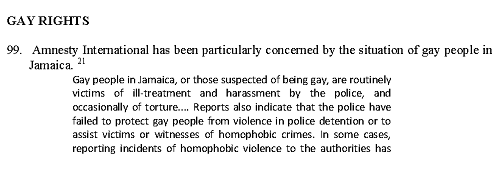GENETICALLY MODIFIED BABIES:IT HAS BEGUN
The world’s first geneticallymodified humans have been created, it was revealed last night.
The disclosure that 30 healthy babies were born after a series of experiments in the United States provoked another furious debate about ethics.
So far, two of the babies have been tested and have been found to contain genes from three ‘parents’.
Fifteen of the children were born in the past three years as a result of one experimental programme at the Institute for Reproductive Medicine and Science of St Barnabas in New Jersey.
The babies were born to women who had problems conceiving. Extra genes from a female donor were inserted into their eggs before they were fertilised in an attempt to enable them to conceive.
Genetic fingerprint tests on two one-year- old children confirm that they have inherited DNA from three adults –two women and one man.
The fact that the children have inherited the extra genes and incorporated them into their ‘germline’ means that they will, in turn, be able to pass them on to their own offspring.
Altering the human germline – in effect tinkering with the very make-up of our species – is a technique shunned by the vast majority of the world’s scientists.
Geneticists fear that one day this method could be used to create new races of humans with extra, desired characteristics such as strength or high intelligence.
Writing in the journal Human Reproduction, the researchers, led by fertility pioneer Professor Jacques Cohen, say that this ‘is the first case of human germline genetic modification resulting in normal healthy children’.
Some experts severely criticised the experiments. Lord Winston, of the Hammersmith Hospital in West London, told the BBC yesterday: ‘Regarding the treat-ment of the infertile, there is no evidence that this technique is worth doing . . . I am very surprised that it was even carried out at this stage. It would certainly not be allowed in Britain.’
John Smeaton, national director of the Society for the Protection of Unborn Children, said: ‘One has tremendous sympathy for couples who suffer infertility problems. But this seems to be a further illustration of the fact that the whole process of in vitro fertilisation as a means of conceiving babies leads to babies being regarded as objects on a production line.
‘It is a further and very worrying step down the wrong road for humanity.’ Professor Cohen and his colleagues diagnosed that the women were infertile because they had defects in tiny structures in their egg cells, called mitochondria.
They took eggs from donors and, using a fine needle, sucked some of the internal material – containing ‘healthy’ mitochondria – and injected it into eggs from the women wanting to conceive.
Because mitochondria contain genes, the babies resulting from the treatment have inherited DNA from both women. These genes can now be passed down the germline along the maternal line.
A spokesman for the Human Fertilisation and Embryology Authority (HFEA), which regulates ‘assisted reproduction’ technology in Britain, said that it would not license the technique here because it involved altering the germline.
Jacques Cohen is regarded as a brilliant but controversial scientist who has pushed the boundaries of assisted reproduction technologies.
He developed a technique which allows infertile men to have their own children, by injecting Fluid DNA straight into the egg in the lab.
Prior to this, only infertile women were able to conceive using IVF. Last year, Professor Cohen said that his expertise would allow him to clone children –a prospect treated with horror by the mainstream scientific community.
‘It would be an afternoon’s work for one of my students,’ he said, adding that he had been approached by ‘at least three’ individuals wishing to create a cloned child, but had turned down their requests.
Source: www.dailymail.co.uk
THRIVING ON DRAMA
Thriving on drama
You might be familiar with one or two people who have been trapped in relationships that thrive on drama. They break up, get back together, break up again, and the cycle continues..
But there are some people who thrive on high drama. They like to create it. They feel most comfortable when they’re surrounded by it.
You might be familiar with one or two people who have been trapped in relationships that thrive on drama. They break up, get back together, break up again, and the cycle continues.
You expect drama from teenage relationships because they are self-conscious and have raging hormones. But why does it seem that some adults never make it out of that stage of life?
Asiphe Ndlela, a psychologist based in Illovo, Johannesburg, says most people trapped in such relationships identify with wounds they can’t heal.
These wounds become part of them.
She says for the most part, drama becomes a mindset.
“Human beings are trained into drama, by their cultures, society and sometimes families. So we can attract drama ourselves, either because of our own personalities or simply not being prepared enough.
“For couples trapped in the break-up cycle, it is very hard for them to decide whether they want to stay in such a tumultuous relationship.”
Ndlela says constant drama is not only a lot of work for the individual who is creating it, but it is also very draining for those around them.
But she says there are certainly times when drama is sincere or even justified, and you can sometimes have so much fun with your dramatic date.
“They are very rarely boring and when they like something you do, they really know how to tell you.
“So drama isn’t always that bad. That is, unless your drama has consequences in your life that don’t feel good.”
She warns that drama can be harmful when it becomes uncomfortable, often for everyone but the instigator.
Ndlela says in order to nurture a healthy, long-lasting relationship, drama must end. “Too much drama is a major drain on our time and energy. It undermines trust.
“It sometimes leads to overt violence, and generally it leads to misery, regardless of its form.
“No one wants to spend time with someone who chronically injects some type of chaos into their life.
“Dramatic behaviour consists of over-the-top reactions to relatively minor incidents. It is unpredictable, unreal and confusing.
“Ideally we want to have relationships that are mainly peaceful and based on reality and trust. Drama goes against what we want when dating.”
She says some personality styles are more prone to drama and for some people, drama is a comfort zone.
“Children raised in chaotic homes, especially those characterised by drug or alcohol abuse, may go on to re-create that chaos in their adult lives. For them, drama is normal.
“It may also be a way to avoid feelings that surface when things around them get too calm.”
People use drama for self-validation. “Contrary to the belief that drama queens are full of themselves, think they are great and important, and just want other people to notice it, in fact,” Ndlela says. “The opposite may be true. Many drama queens are insecure. They don’t think they want attention, but creating chaos proves they exist.”
How do you identify drama queens in your life? Ndlela says to avoid drama queens it is important to identify them before you date them!
“Some people have narcissistic personality disorder or other problems. They are more prone to hysterical, self-serving, attention-seeking behaviour. They can be very manipulative and will reel you in to play cat-and-mouse games with you.
“They tend to (adopt) the role of the victim.”
You can spot a drama queen when the person has the capacity to turn the smallest issue into a major event.
****RULES**** 1. Debates and rebuttals are allowed but disrespectful curse-outs will prompt immediate BAN 2. Children are never to be discussed in a negative way 3. Personal information eg. workplace, status, home address are never to be posted in comments. 4. All are welcome but please exercise discretion when posting your comments , do not say anything about someone you wouldnt like to be said about you. 5. Do not deliberately LIE on someone here or send in any information based on your own personal vendetta. 6. If your picture was taken from a prio site eg. fimiyaad etc and posted on JMG, you cannot request its removal. 7. If you dont like this forum, please do not whine and wear us out, do yourself the favor of closing the screen- Thanks! . To send in a story send your email to :- [email protected]








Recent Comments